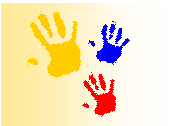|
By Heather Barr THE
NEWS-TIMES
“Struggling to find
answers to their son's behavior problems, a Newtown couple found help through
diet, vitamins and traditional medicine”
After visiting the Connecticut Chiropractic Neurology Center in Darien, Andrew, 8, of Newtown, has gotten treatment that has improved his
life.
A brown-haired boy with glasses and a toothy grin,
8-year-old Andrew likes to ride his bike with his family on weekends.
Sometimes he can be found teaching his 3-year-old sister to
play basketball. He bought her a small basketball hoop at a tag sale, and it's
just her size.
While he's helping her learn the basics of basketball, he's
also doing some learning of his own in a summer school reading program. His
mother helps him practice reading and spelling in their Newtown home.
At one point going forward into the third grade didn't seem
like a realistic possibility for Andrew, she said, because he struggled
mightily through most of second grade. He lacked energy, was irritable and
couldn't focus. His family didn't know what to do.
After seeing several psychologists, Andrew was diagnosed
with Tourette's syndrome and ADHD (attention deficit hyper activity disorder).
Because of the stigma which can be associated with these conditions, his family
asked that their last name not be used in this feature. But they wanted to
share their story, in hopes it will help others who may be in a similar
situation.
Tourette's is a neurological disorder which becomes evident
in children between the ages of 2 and 15. It's defined by multiple motor and/or
vocal tics lasting for more than a year.
The first symptoms usually are involuntary movements or tics
of the face, arms, limbs or trunk that are frequent, repetitive and rapid. The
most common first symptom is a facial tic like an eye blink or nose twitch and
is replaced or added to by other tics of the neck, trunk, and limbs.
These involuntary tics may involve the entire body such as
kicking and stamping. Many with the condition say they have an urge to perform
a motor activity. Other symptoms such as touching, repetitive thoughts and
movements and compulsions can occur, too.
There are also verbal tics like grunting, throat clearing or
saying obscene words. Males are more likely to be affected than females.
Associated conditions can range from learning disabilities
to attention deficit hyper activity disorder (ADHD).
Andrew's symptoms began around the summer of 2005.
"Last summer he was feeling badly," said his mother. He didn't want
to play outside with any other kids. He would stay inside on the couch and
watch "National Geographic."
In the fall of 2005, Andrew began keeping his mouth wide
open and soon began to jump up and down all day long. "The jumping was
unbearable," said his mother. About three times a day he would slam into
something and hurt himself, she added.
When his parents asked him to do even small things like pick
up his shoes, he wouldn't listen. Mornings were very difficult for his mother –
he didn't want to get ready for school.
He had problems completing assignments for school because he
was irritable and couldn't focus. Andrew's teacher told his parents he
struggled with reading even a single sentence.
His mother and father saw him struggling, too. He'd kick and
scream when he had to go to church and Sunday school, said his father.
"I couldn't take care of him," added his mother.
We couldn't visit people. It was miserable."
Finding help for Andrew became a full-time job. His mother
took him to numerous psychologists who gave him different medications. One
mistake she said the family made was staying with one doctor too long; even
though treatment wasn't working, they kept going back, hoping for some change.
"The majority were co-pay and go away," she said.
After numerous attempts to discover the best ways to help
Andrew, they wound up seeing a naturopath who recommended fish oil and
multivitamins. Finally, there were signs of improvement.
In addition to the basic medical sciences, they use
everything from food and herb therapy to psychology.
On March 29, Andrew's mother attended a seminar at the Raymond Learning Center in Ridgefield. The speaker, a chiropractic neurologist, was Dr. Robert
Zembroski of the Connecticut Chiropractic Neurology Center in Darien. He spoke
about how to get help for kids with learning and behavior problems without
having to put them on prescribed medication.
"I didn't sleep all night after the seminar," said
Andrew's mother. The next day she called the center and got an appointment for
her son.
Zembroski did research into the family's history, and
performed a neurological and physical evaluation, which included taking the
boy's blood pressure and measuring the size of his pupil.
With Andrew he used videonystagmography – an infrared camera
system that records eye movements during specific testing procedures. Because
the eyes are a reflection of brain function, information from these tests aids
in the discovery of brain asymmetry, according to the clinic's Web site.
Goggles were placed over Andrew's face for the test. From
the videonystagmography, it was determined he had a decreased function in the
right hemisphere of his brain, said Zembroski.
It's all about defining the dysfunction of a patient and
then specifically putting in place a nutrition plan to makes it better, he
said.
He has seen a lot of patients with a number of problems,
some up to 20 symptoms, from dyslexia, Tourette's syndrome and motor
depravation, all "stemming from an aspect of the nervous system."
"He (Zembroski) is the only one who was able to tell me
what was wrong with Andrew's body," said his mother.
Zembroski prescribed Andrew a multivitamin, OPC-3, Co Enzyme
Q10 and fish oil vitamins. He prescribes NutriMetrix Products vitamins because
he has seen the best results with them. About 90 percent of the nutrients are
absorbed, said Zembroski. Many vitamins people take are not absorbed as well as
they think, he added.
Diet is also important. His mother said ever since he was a
young boy, he'd become irritable after eating foods with dyes in them.
Zembroski told her many petroleum-based food dyes have a
negative effect on the basal ganglia of the brain, shutting off the chemicals
needed to function. He tells parents to keep their kids away from foods with
dyes.
What we usually find is when people start to improve their
health conditions, they can wean off their medication (if they took
prescription medication for the disorder), said Zembroski.
Andrew continues to take a prescription drug for Tourette's,
but takes a smaller dosage than what he needed before finding Zembroski. He's
also been able to wean off other medications.
Many people are skeptical about the program, said Zembroski,
but "when you educate them on the real cause of what's wrong, they get
over their skepticism and they are shown how the dysfunction goes away in a
short period of time."
He recommends patients have office therapy and home therapy.
To increase the function of parts of the brain, he has
patients do therapy with different intensities for a patient's condition.
"Most times I recommend a specific physical stimulus to
rehabilitate someone," he said. In Andrew's case he needs to strengthen
weak motor skills, so Zembroski has Andrew dribble with his right hand like
usual down the driveway, and then dribble back down the driveway with his left
hand.
Another exercise he does is squeezing putty in his left
hand. "There is nothing painful or unpleasant about this," said his
mother.
Now he's a "completely different kid," she said.
"He's doing fantastic."
"There has been a huge improvement," added his
father.
Improvements have been ongoing since the beginning of April
when Andrew began taking the vitamins in addition to the Tourette's syndrome
drug. He went from a reading level of six to 28 and is now in same reading
level of other kids his age, said his mother.
In a math assessment done near the end of his second grade
school year, Andrew got 43 out of 44 answers correct and was able to move out
of special education math.
He began to enjoy learning about subjects from history to
dinosaurs. He finished his homework in a short amount of time.
"I feel a lot better," said Andrew.
"He is much more confident in his behavior," in
social settings, added his mother. "I couldn't get him to play with other
kids (before). Now he can't wait to play with everybody."
The biggest improvement "is his behavior," said
his father.
Andrew now looks forward to church on Sundays; he enjoys
everything from the goodies after the service to the arts and crafts at Sunday
school.
His relationships with his family are better, too. He and
his sister can play together without fighting. He and his two sets of
grandparents spend time together. With one of his grandfathers he takes money
deposits to the bank. He also helps one of his grandmothers recycle her
bottles. With his father's father, who has a tree business, he goes with him to
deliver logs.
"I don't have to hold my breath wondering 'What's he
going to do?,' " said his mother of his behavior and actions.
While each case is different, Andrew's parents want others
to know there are options besides prescription medications that are worth
exploring.
|





